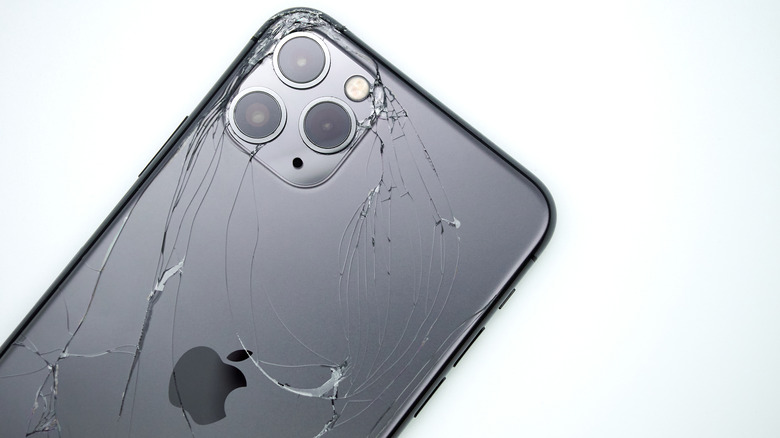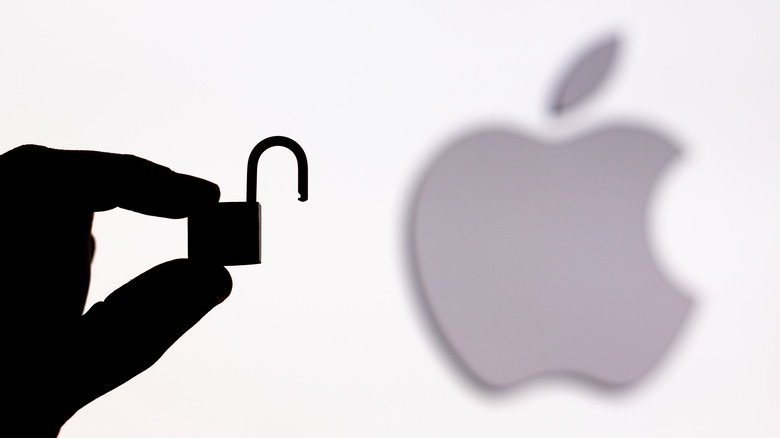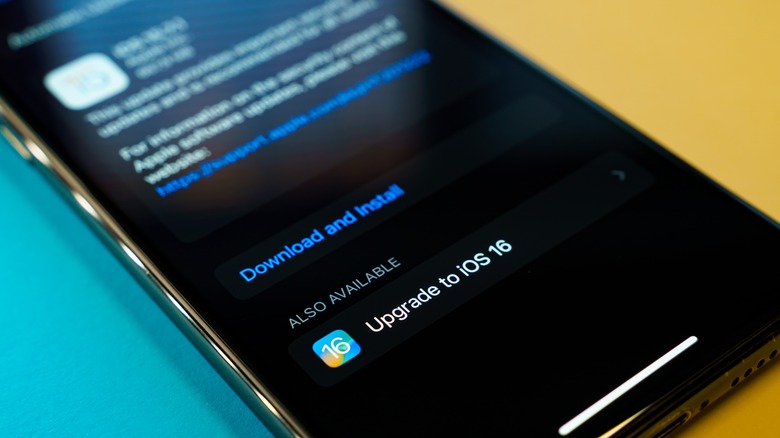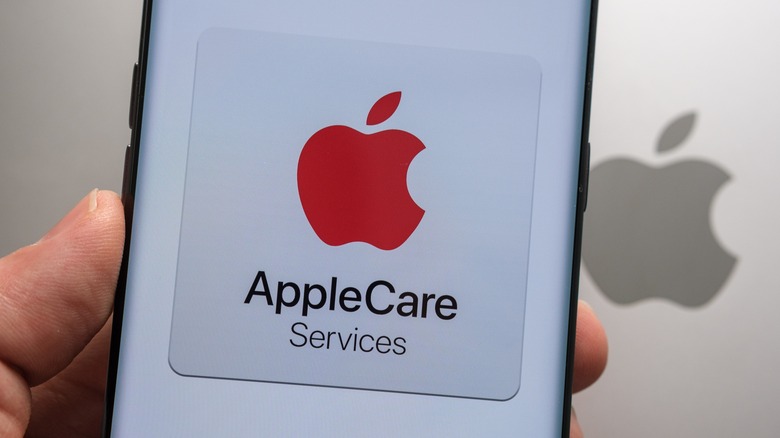What Are The Risks Of Jailbreaking Your iPhone?
It's common knowledge among mobile phone enthusiasts that the iPhone is probably the most secure and locked-down device option available these days. If you are someone who doesn't mind being forced to stay within the Apple ecosystem and only use apps available through the official App Store, the iPhone's seemingly infallible security may be an attractive factor. However, if you prefer having more control over the inner workings of your mobile phone, you may think that the iPhone's operating system is too rigid and resort to jailbreaking the device.
Jailbreaking — like the name implies — is a term pertaining specifically to hacking the iPhone in order to apply modifications to its operating system and essentially break the device free from Apple's confines. Similar to "rooting" which often refers to Android devices, the jailbreaking process bypasses security features and lets you get unimpeded access to iOS and tweak features that would have otherwise been hidden from regular iPhone users. People adept in programming and hacking, or who are interested in expanding their use of the iPhone do this for a variety of reasons, like making changes to the phone's interface or making it easier to connect it to a PC and access files from it. The most common reason for jailbreaking an iPhone is to install apps that aren't available through the App Store or delete ones that come preinstalled on it.
Apple discourages jailbreaking for obvious reasons — the act itself is designed to make unauthorized alterations to the core of what makes the iPhone an excellent device, fortified by various layers of security. While some may argue that electronics experts may be able to avoid serious repercussions when hacking an iPhone, there are considerable risks that make the process not worth the trouble.
Your personal information is potentially vulnerable
If you can visualize the iPhone as an onion, think of jailbreaking as the act of peeling off most of the layers, the layers being security and privacy protocols that protect your data from unwanted exposure. When you jailbreak the Apple device, you essentially take away the very thick barrier that keeps your personal information and the rest of the contents of your mobile phone virtually inaccessible from hackers or individuals who will use the data for malicious intent.
While it's true that you can probably install apps that were deemed unsuitable by Apple to include in the App Store — like emulator apps that let you access several games without having to purchase them — you are basically gambling with the security of your device (per Kaspersky). These apps have not been vetted by Apple and have not passed the company's security standards. For all you know, installing them could introduce malware, viruses, and other vulnerabilities into your iPhone.
Your iPhone's overall performance may be seriously affected
When you tinker with the iPhone's iOS, you run the risk of experiencing a frequent lag on the device, caused by making too many changes to the code. It's common for jailbroken iPhones to regularly crash and for mobile apps to freeze. Certain apps and services built into the device — such as iCloud, iMessage, FaceTime, or Apple Pay, to name a few — may even stop working completely.
According to Apple, the use of hacked software can cause potential battery drain in an iPhone. In some cases, it can even lead to unwanted loss of data that may not always be retrievable. More importantly, when an iPhone is jailbroken, iOS stops working as intended, so future updates may not even be downloadable, much less installable. Frequently applying iOS updates when they become available is crucial to Apple's maintenance of your iPhone's security and overall functionality. These updates often contain improvements to security features in your Apple device, so if you are unable to run your iPhone on the latest release, you run the risk of exposure to new bugs, viruses, and other security issues.
Your Apple warranty will be null and void
Repairing a broken iPhone is actually fairly easy if you purchased AppleCare support. Thanks to its limited warranty, every iPhone is afforded one full year of hardware repair coverage, along with up to 3 months of free technical support. You can rest assured that Apple experts will be on hand to solve whatever iPhone issue you have and in some cases, depending on your coverage, you can even replace your device for free if warranted.
If you jailbreak your iPhone, all of these safeguards are promptly and figuratively flushed down the toilet. Unauthorized modifications on iOS are considered by Apple as a violation of the end-user software license agreement. Because of this, the company reserves the right to deny service for any iOS product that has been tampered with, including an iPhone. If you run into iPhone issues that you yourself can't fix due to jailbreaking, you cannot redeem AppleCare support and will essentially be stuck with an expensive bricked iPhone. Of all the risks to run into when you jailbreak an iPhone, this is perhaps the scariest one, considering the price tag.



